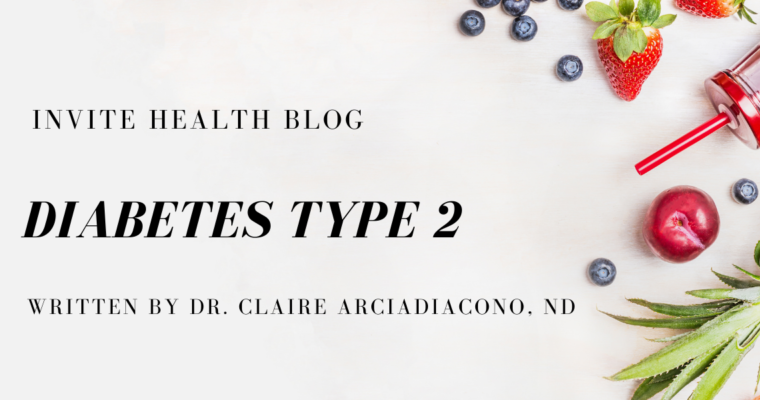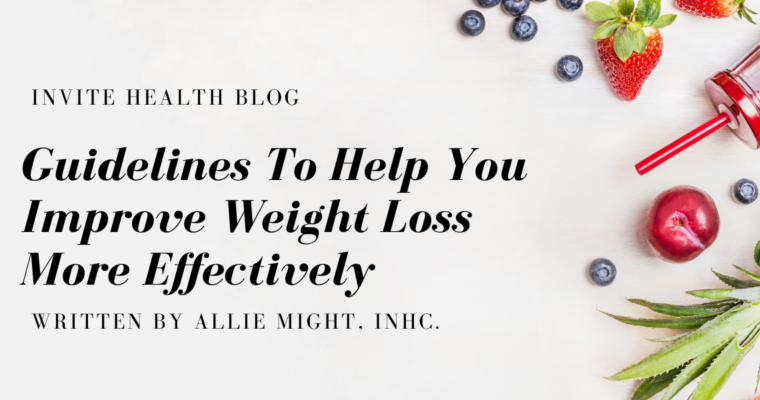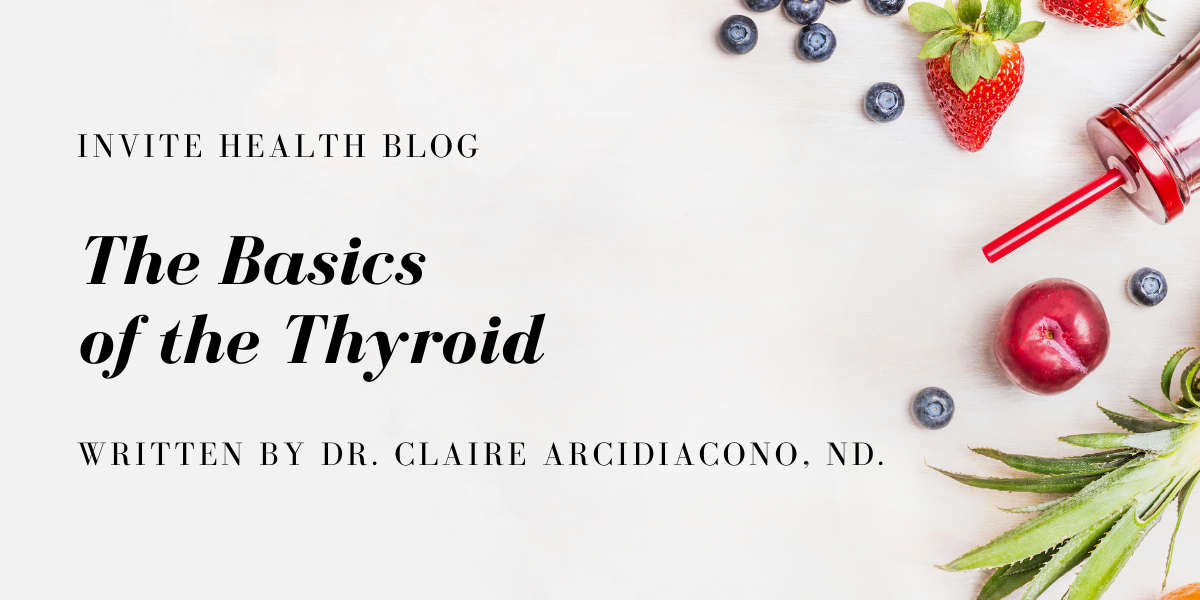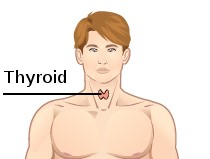weight management
Written by Dr. Claire Arcidiacono, ND
For further questions or concerns email me at carcidiacono@invitehealth.com
Thyroid Impacting Weight Management
Almost everyone knows the thyroid controls weight. But did you know it also controls metabolism? What exactly is metabolism? In the medical world, it is known as basal metabolic rate or BMR. Basically, it’s the number of calories you use to just live. Sleeping, breathing and even sitting are all things that contribute to the BMR. Being very active and engaging in physical exercise will cause it to increase. BMR is usually calculated based on the following factors: age, gender, height and weight. (1) In addition to the thyroid, other hormones can and do affect weight. However as this is a series on the thyroid, I’ll focus solely on how thyroid affects weight.
SUPPORTING THE THYROID TO PROMOTE HEALTHY ENERGY AND WEIGHT – INVITE HEALTH PODCAST, EPISODE 413 >> Listen Now!
To recap, the thyroid is in charge of BMR. Studies show that people with low thyroid function had lower BMRs, compared to those with a higher than normal amount of thyroid hormone, who had higher BMRs. (2) Meaning, those with a decreased thyroid function gained weight easily; while those with an increase in thyroid function were able to lose weight.
Now, it is very important to first determine if weight loss or weight gain is related to the thyroid. Blood work is always a great place to start. In the article regarding blood testing, I gave you some things you should go over with your doctor. After that, you’ll have some time in between doing blood work and getting results back. During that time, you should utilize it by starting a food diary or log of anything you eat throughout the day. It’s very important to be honest about what you’re eating if you want to try to balance your food intake. I know it might be embarrassing to write down or tell a nutritionist you had 4 slices of pizza, 3 times this week; but it’s easier to understand what we need to do when someone is honest about what they eat; rather than saying what they think we want to hear. Why do I seem to be harping on this issue? Even with a thyroid disorder, what we eat is one of the most important things to help regulate our weight. While it is true that having a lower/higher level of thyroid hormone will make it easier to gain or lose weight, it’s not the only concern regarding a healthy weight. Having a healthy or unhealthy relationship with food is just as important to talk about. (3) If you have a thyroid disorder and an unhealthy relationship with food, it’s like throwing gasoline on a fire; it will only make it worse.
So what can we do?
Well first, get blood work down then do your food log. Once you have your blood work and food log feel free to contact an InViteⓇ Health nutritionist. I am always happy to go over your food log. Email me at carcidiacono@invitehealth.com, if you’re interested in working with me! Next, work with a nutritionist to determine what is going on with your thyroid. Is it higher than normal? Lower? Is there an autoimmune problem going on? All of these are topics we have covered in this series. Feel free to look back on any of our previous blogs!
Supplements For Weight Management
In addition to working on the thyroid and what you are eating, there are supplements that studies show can help with weight loss and weight gain.
For weight loss the following have been found to be helpful, Green Tea: This has been found in studies to help with weight loss. (4)
See InViteⓇ Health’s Supplements: Green Tea Tx™ , Green Tea HxⓇ, and Green Tea Fat Burner
HOW GREEN TEA SUPPORTS FAT BURN AND WEIGHT LOSS >> Read Now!
For weight gain the following have been found to be helpful, CLA: in a study with obese men, they supplemented CLA for 4 weeks, which showed a decrease in belly fat. (5)
See InViteⓇ Health’s Supplements: CLA
Phase 2: A great addition to green tea, it has been found to potentially help both obesity and triglycerides. (6)
See InViteⓇ Health’s Supplements: Phase 2 Carb Controller
Helpful Weight Loss Drinks
*The following smoothie recipes can be used as a meal replacement
Citrus Smoothie
Water
InViteⓇ Health Whey Protein
Oranges HxⓇ
Collagen HxⓇ
Add 1 dropper-full Green Tea Tx™
Open 1 capsule of Probiotic HxⓇ Weight into the shaker.
Shake well and enjoy over ice!
Detox Smoothie
Water
InViteⓇ Health Whey Protein
Collagen HxⓇ
Dr Pressman Daily Detox
Dr Pressman Organic Greens Plus
Open 1 capsule of Probiotic HxⓇ Weight into the shaker.
Shake well and enjoy over ice!
For more information see Allie Might’s podcast on this fantastic topic!
Helpful Weight Gain Drinks
*The following smoothies will be best eaten in between meals for weight gain benefits (not instead or in place of one of the three meals eating each day)
Retro Weight Gainer
Milk of choice
Weight Management Powder
Cocoa HxⓇ
Dr Pressmen Organic Greens Plus
Collagen HxⓇ
1 Avocado, or banana or 1 tablespoon coconut oil
Superfood Weight Gainer
Milk of choice
Weight Management Powder
Reds HxⓇ
Greens HxⓇ
Collagen HxⓇ
Sources
https://www.garnethealth.org/news/basal-metabolic-rate-calculator
https://www.btf-thyroid.org/thyroid-and-weight-the-science
https://newsnetwork.mayoclinic.org/discussion/mayo-clinic-minute-which-is-better-for-losing-weight-diet-or-exercise/
https://www.sciencedirect.com/science/article/abs/pii/S0031938410000703
https://pubmed.ncbi.nlm.nih.gov/11477497/
https://pubmed.ncbi.nlm.nih.gov/15005645/#:~:text=Results%3A%20The%20results%20after%20eight, percent%20(p%3D0.35).











